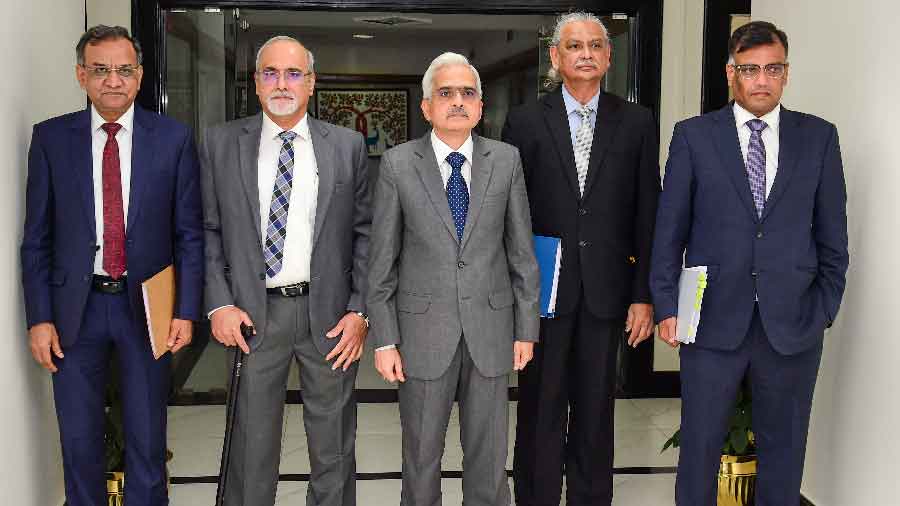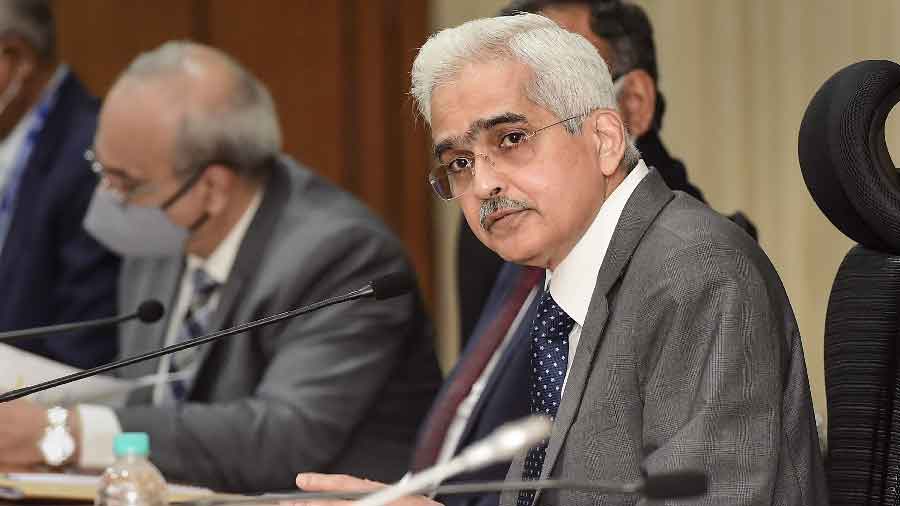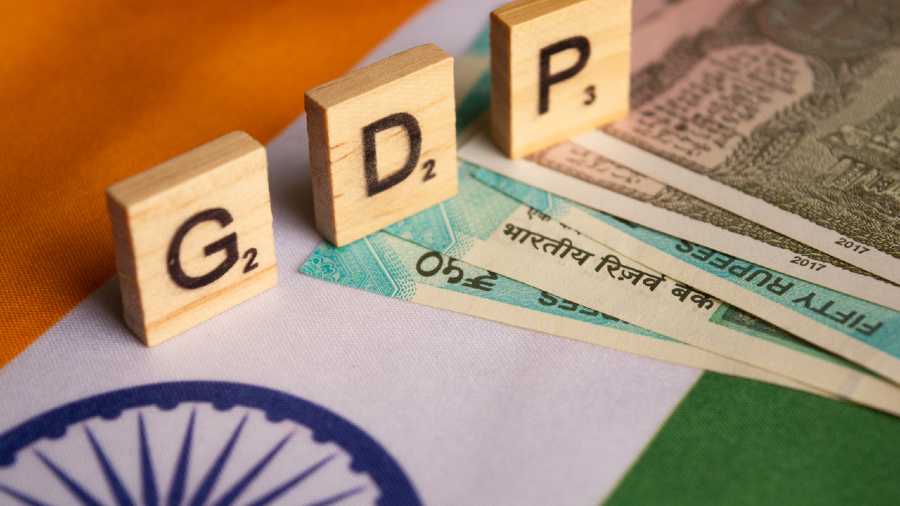After hiking the repo rate by 0.50 per cent, RBI Governor Shaktikanta Das on Wednesday said future policy actions by the central bank will be guided by the evolving conditions.
Addressing a press conference, the governor said the RBI has changed the policy stance to drop the phrase "remains accommodative", and instead opted for "withdrawal of accommodation" for guiding its future moves.
The central bank did not hike the cash reserve ratio contrary to speculation, he said, adding that the liquidity withdrawal will be calibrated and measured. He assured that adequate liquidity will be available for banks to lend for economic growth.
The Indian economy continues to be resilient and is well placed to deal with challenges emerging from the global worries and will be supported by a banking system having strong capital buffers, low non-performing assets and higher provisioning coverage, Das said.
At a time when the RBI upped its inflation expectation to 6.7 per cent, the governor said he is confident that the actions being taken by the central bank will help reduce inflation and also inflationary expectations among the people.
He assured that the RBI does not want to take any abrupt or rough action that will be detrimental to inflation and the markets.
Das also said that the credit offtake has improved, and the number is over 12 per cent now.
To a question on what happens when the central bank misses its target of containing inflation with the headline number overshooting for three consecutive quarters, he said the central bank will deal with it as and when the situation arises.
When asked if the government should initiate more measures on the supply side, he said the government is "mindful" of the realities and will take appropriate measures.
The governor said the RBI is in constant dialogue with the government on many issues, including cryptocurrencies, and will be awaiting the discussion paper to be floated by the Centre soon.

(L-R) RBI Deputy Governors M.K. Jain, M. Rajeshwar Rao, RBI Governor Shaktikanta Das, Deputy Governors Michael Debabrata Patra and Rabi Shankar arrive for a press conference at RBI headquarters in Mumbaii PTI Picture
War led to globalisation of inflation: RBI Guv
RBI Governor Shaktikanta Das on Wednesday said the Ukraine-Russia war has led to globalisation of inflation and is posing new challenges, as the central bank upped the inflation projection to 6.7 per cent for current fiscal year.
In April, RBI had projected retail inflation at 5.7 per cent for 2022-23.
The Reserve Bank has the mandate to keep retail inflation at 4 per cent with a bias of 2 per cent on either side. However, retail inflation has been above 6 per cent for the last four months in a row, rising to as high as 7.8 per cent in April.
"We navigate through this difficult period," Das said, emphasising the need to be sensitive to the new realities and incorporating then into "our thinking".
Das said the war has posed new challenges as it continues to linger. It is accentuating the existing supply chain disruptions, resulting in elevated prices of food, energy and commodities across the globe.
"Countries across the world are facing inflation at decadal highs and persistent demand-supply imbalances. The war has led to globalisation of inflation. Inflationary pressures have become broad-based and remain largely driven by adverse supply shocks," Das said.
He pointed towards the growing signs of a higher pass-through of input costs to selling prices. The Monetary Policy Committee(MPC) headed by RBI Governor noted that inflation is likely to remain above the upper tolerance band of 6 per cent through the first three quarters of 2022-23.
"With the assumption of a normal monsoon in 2022 and average crude oil price (Indian basket) of USD 105 per barrel, inflation is now projected at 6.7 per cent in 2022-23," Das said.
RBI has projected retail inflation at 7.5 per cent in Q1 (quarter ending June 2022); 7.4 per cent in Q2 and at 6.2 per cent in Q3 before coming down to 5.8 per cent in Q4.
Das said emerging market economies (EMEs) are facing bigger challenges due to the increased market turbulence, monetary policy shifts in advanced economies and their spillover effects.
With the recent supply side interventions by the government, including cut in excise duties on petrol and diesel, RBI hopes to mitigate the inflationary concerns to some extent.
The MPC also decided to remain focused on withdrawal of accommodation to ensure that inflation remains within the target going forward, while supporting growth, Das said, adding repo rate still remains below the pre-pandemic level.
There has been a heightened uncertainty around the domestic inflation outlook as the global geopolitical situation remains fluid with commodity markets on the edge, RBI said adding that the recent measures on the price front may help ease the acute price pressures to some extent.
Expectation of a normal monsoon and kharif agricultural season; the recent supply side measures taken by the government; lifting of palm oil export ban by Indonesia; and signs of moderation in global industrial metal price indices, would help ease the inflationary concerns further, the Governor said.
"Our quick survey of urban households undertaken after the excise duty cuts on petrol and diesel on May 21, 2022 shows a significant moderation in their inflation expectations.
"In such a scenario, further reduction of state VATs on petrol and diesel across the country can certainly contribute to softening of the inflationary pressures as well as expectations," Das said.
However, despite these positive interventions, RBI has cautioned that the upside risks to inflation do persist on the back of higher commodity prices, revision in power tariffs by many states, high domestic poultry and animal feed costs; continuing trade and supply chain bottlenecks, among others.
Das said the recent spike in tomato prices is adding to food inflation, with the elevated international crude oil prices the most impactful. He highlighted that around 75 per cent of the increase in inflation projections can be attributed to the food group.
"With no resolution of the war in sight and the upside risks to inflation, prudent monetary policy measures would ensure that the second-round effects of supply side shocks on the economy are contained and long-term inflation expectations remain firmly anchored and inflation gradually aligns close to the target," Das said.
The monetary policy actions including withdrawal of accommodation will be calibrated keeping in mind the requirements of the ongoing economic recovery, he added.












